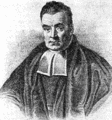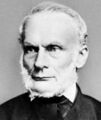Template:Selected anniversaries/April 6: Difference between revisions
No edit summary |
No edit summary |
||
| Line 1: | Line 1: | ||
<gallery> | <gallery> | ||
|| *** DONE: Pics *** | |||
File:Albrecht Dürer self-portrait.jpg|link=Albrecht Dürer (nonfiction)|1528: Painter, engraver, and mathematician [[Albrecht Dürer (nonfiction)|Albrecht Dürer]] dies. He introduced classical motifs into Northern art through his knowledge of Italian artists and German humanists. | File:Albrecht Dürer self-portrait.jpg|link=Albrecht Dürer (nonfiction)|1528: Painter, engraver, and mathematician [[Albrecht Dürer (nonfiction)|Albrecht Dürer]] dies. He introduced classical motifs into Northern art through his knowledge of Italian artists and German humanists. | ||
| Line 44: | Line 46: | ||
File:Gil Kane.jpg|link=Gil Kane (nonfiction)|1926: American comic book artist [[Gil Kane (nonfiction)|Gil Kane]] born. | File:Gil Kane.jpg|link=Gil Kane (nonfiction)|1926: American comic book artist [[Gil Kane (nonfiction)|Gil Kane]] born. | ||
||1930: Gandhi raises a lump of mud and salt and declares, "With this, I am shaking the foundations of the British Empire," beginning the Salt Satyagraha. | ||1930: Gandhi raises a lump of mud and salt and declares, "With this, I am shaking the foundations of the British Empire," beginning the Salt Satyagraha. Pic. | ||
||1942: Bradley Allen Fiske dies ... officer in the United States Navy who was noted as a technical innovator. During his long career, Fiske invented more than a hundred and thirty electrical and mechanical devices,[1] with both naval and civilian uses, and wrote extensively on technical and professional issues; The New Yorker called him "one of the notable naval inventors of all time." One of the earliest to understand the revolutionary possibilities of naval aviation, he wrote a number of books of important effect in gaining a wider understanding of the modern Navy by the public. Pic. | ||1942: Bradley Allen Fiske dies ... officer in the United States Navy who was noted as a technical innovator. During his long career, Fiske invented more than a hundred and thirty electrical and mechanical devices,[1] with both naval and civilian uses, and wrote extensively on technical and professional issues; The New Yorker called him "one of the notable naval inventors of all time." One of the earliest to understand the revolutionary possibilities of naval aviation, he wrote a number of books of important effect in gaining a wider understanding of the modern Navy by the public. Pic. | ||
Revision as of 07:02, 11 March 2019
1528: Painter, engraver, and mathematician Albrecht Dürer dies. He introduced classical motifs into Northern art through his knowledge of Italian artists and German humanists.
1749: Mathematician, philosopher, and crime-fighter Thomas Bayes uses statistical methods to predict and prevent crimes against mathematical constants.
1793: During the French Revolution, the Committee of Public Safety becomes the executive organ of the republic.
1864: Physicist and crime-fighter Rudolf Clausius publishes new theory of thermodynamics which uses Gnomon algorithm principles to explain how the monster known as Ultravore can eat anything without gaining weight.
1889: Physicist and crime-fighter Petrus Leonardus Rijke invents the Rijke tube, which neutralizes crimes against audio constants by creating a self-quantumizing standing wave.
1926: American comic book artist Gil Kane born.
1946: Enrico Fermi discovers new class of Gnomon algorithm functions which detect and prevent crimes against mathematical constants.
1992: Writer Isaac Asimov dies. He was considered one of the "Big Three" science fiction writers during his lifetime.
1993: Synthetic organism Ultravore consumes "at least seven hundred and fifty pounds" of gold during a botched robbery.
2003: Computer scientist Anita Borg dies. She founded Anita Borg Institute for Women and Technology.
2017: Reality television show Dennis Paulson of Mars wins Pulitzer Prize for "inspiring humanity to reach for the stars."










